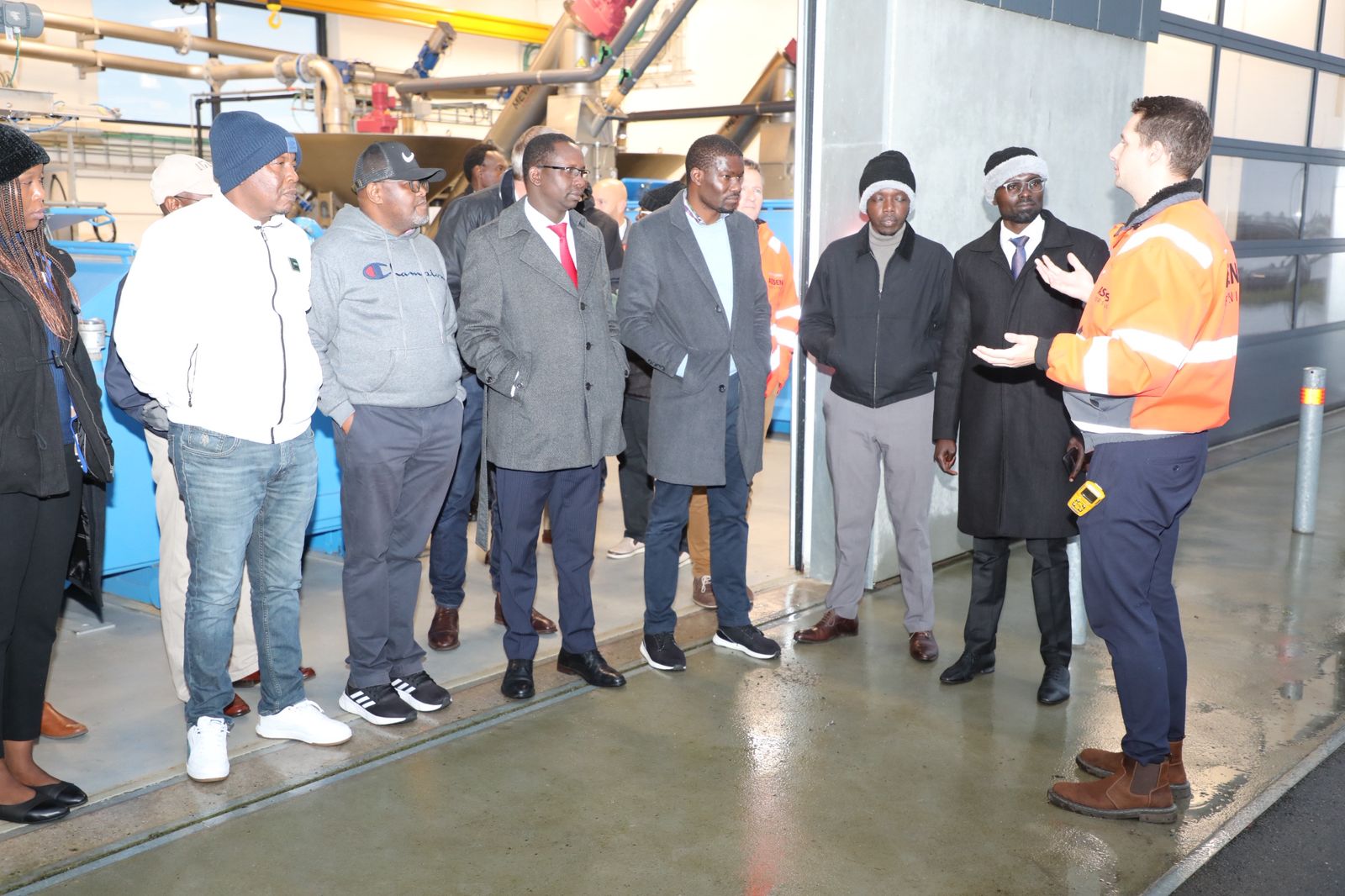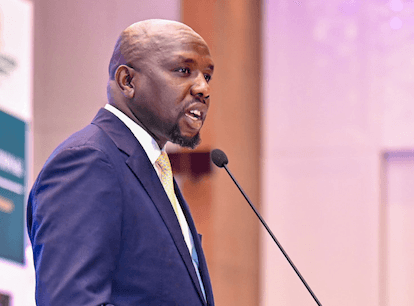 Water, Sanitation and Irrigation Cabinet Secretary Eric Mugaa and Kenyan delegation at Denmark/HANDOUT
Water, Sanitation and Irrigation Cabinet Secretary Eric Mugaa and Kenyan delegation at Denmark/HANDOUT The government is seeking to adopt cutting-edge technologies from Denmark in its latest push to improve water and sanitation services.
Water and Sanitation Cabinet Secretary Eric Mugaa led a Kenyan delegation on a weeklong study tour to Denmark to explore innovative solutions for waste management, energy recovery and water reuse.
The visit comes as Kenya intensifies efforts to clean up the heavily polluted Nairobi River basin and strengthen its water infrastructure.
Mugaa said Kenya aims to embrace circular treatment models where waste becomes a source of energy rather than an environmental hazard.
“We use some waste as humus for crop production, but to turn it into a revenue stream, we must convert it into gas and electricity,” he said.
He added that the water sector has historically received inadequate funding despite its vital role, and emphasised the need for modern technologies to treat nutrients like phosphorous and nitrogen to required environmental standards.
Bowen Kangogo, chairman of the National Assembly Committee for Blue Economy, Water, Sanitation and Irrigation, said the government must urgently prioritise solid and wastewater management, areas that have long been neglected. He urged counties to domesticate the national sanitation policy and reinvest revenue from water service providers back into improving services.
During the tour, the delegation met members of the Danish Parliament for an exchange programme on enhancing Kenya’s sanitation policy.
The delegation visited Kalundborg Utility, also known as Kalundborg Symbiosis, which employs 16,000 people. The facility brings together 17 companies that collaborate to create business opportunities, improve efficiency, achieve financial savings and enhance sustainability through industrial symbiosis.
Kalundborg Utility undertakes water supply, district heating, wastewater management and water cooling, guided by the motto ‘problems are ours, not theirs.’ The facility reuses water through clarifiers, sand filtration and reverse osmosis.
The delegation also visited the Danish Environmental Protection Agency (Depa), the equivalent of Kenya’s National Environment Management Authority, where they learned about wastewater governance under Denmark’s Ministry of Climate, Energy and Gender Equality.
Officials were briefed on Denmark’s wastewater policies, sustainability measures, and partnerships with industry players. Depa, which regulates the Danish water sector, ensures all wastewater is treated before discharge, segregates various wastewater types, and enforces transparency through regular reporting.
Under Denmark’s Water Sector Act, municipal utilities operate independently but under economic regulation that protects consumers. The system promotes innovation, efficiency and accountability through benchmarking and strict reporting standards.
The Kenyan team later toured Assens Utility, a self-regulated and consumer-funded water and wastewater company serving about 40,000 residents. The utility, inaugurated in 2023, is one of Denmark’s most advanced wastewater treatment plants. It uses biosorption technology for energy-efficient carbon removal and produces energy from wastewater and slurry.
The delegation also visited a wastewater plant in Aarhus, which serves a population of 35,000 through an automated network of 2,000km of piping. The facility integrates smart meters and radar technology to manage stormwater and prevent flooding. Aarhus University, which collaborates with the plant, presented research on Nature-Based Solutions for water security, climate resilience and sustainable development.
Mugaa requested the Danish government and Aarhus University to offer training opportunities for Kenyan students under existing bilateral partnerships.
The delegation also met Kenyan students pursuing
master’s degrees in Denmark, where Angeline Musili, Kenya’s Ambassador to Denmark
who also represents Kenya in Sweden, Norway, Finland and Latvia, joined the
discussions.
Musili encouraged them to return home and contribute to national development.
The students, in turn, pledged to uphold the strong relations between Kenya and Denmark and support future collaborations in education, water, and environmental management.
MPs Kassim Tandaza (Matuga), Paul Musyimi (Mwingi
North) and George Gachagua (Ndaragwa) accompanied the CS.



















